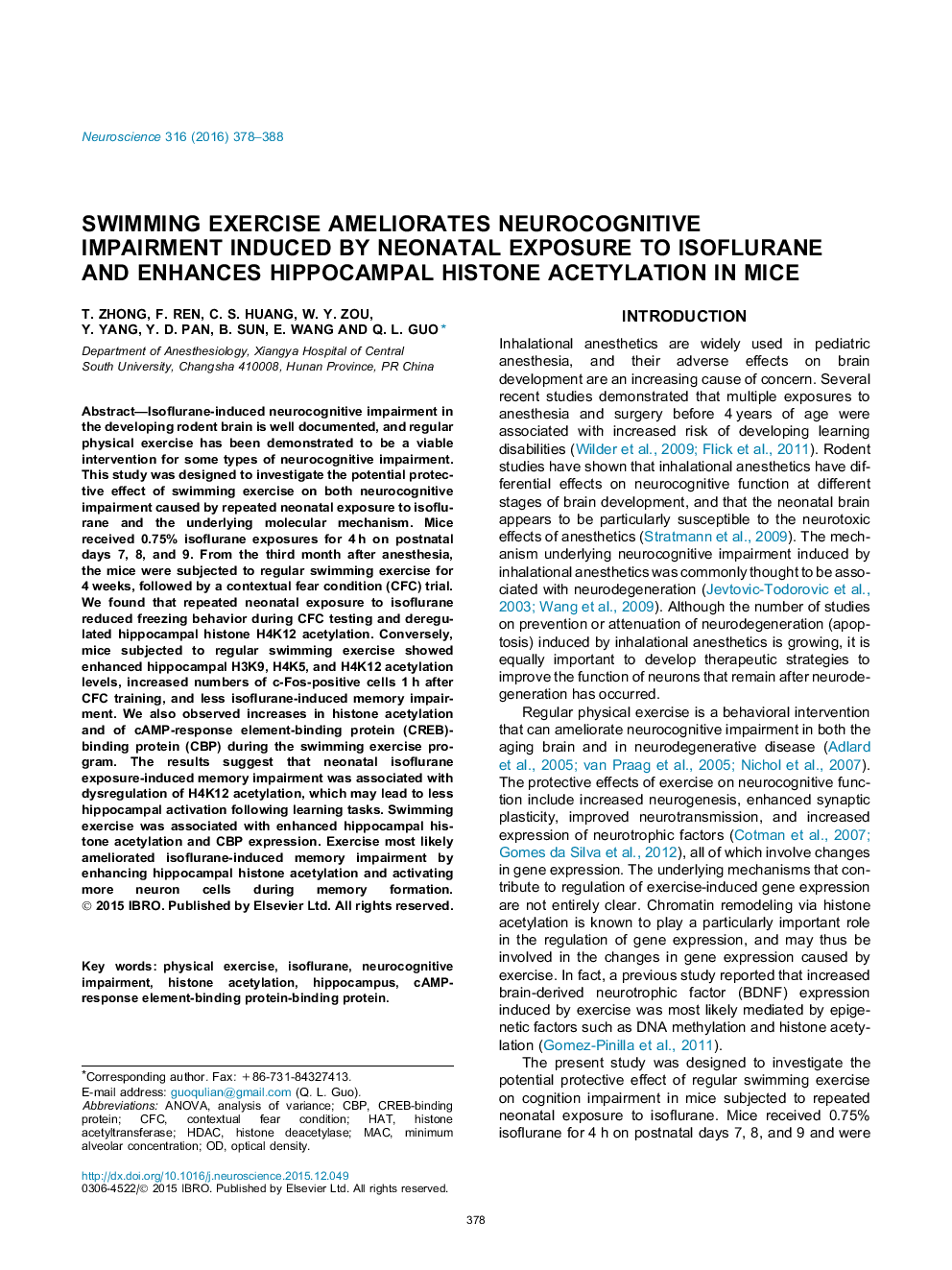| کد مقاله | کد نشریه | سال انتشار | مقاله انگلیسی | نسخه تمام متن |
|---|---|---|---|---|
| 6271434 | 1614760 | 2016 | 11 صفحه PDF | دانلود رایگان |
- Repeated neonatal exposure to isoflurane induced impairment of neurocognition.
- Swimming exercise ameliorated isoflurane-induced neurocognition impairment.
- Swimming exercise elevated hippocampal CBP expression and histone acetylation.
- Swimming exercise enhanced hippocampal neuron activity during memory formation.
Isoflurane-induced neurocognitive impairment in the developing rodent brain is well documented, and regular physical exercise has been demonstrated to be a viable intervention for some types of neurocognitive impairment. This study was designed to investigate the potential protective effect of swimming exercise on both neurocognitive impairment caused by repeated neonatal exposure to isoflurane and the underlying molecular mechanism. Mice received 0.75% isoflurane exposures for 4Â h on postnatal days 7, 8, and 9. From the third month after anesthesia, the mice were subjected to regular swimming exercise for 4Â weeks, followed by a contextual fear condition (CFC) trial. We found that repeated neonatal exposure to isoflurane reduced freezing behavior during CFC testing and deregulated hippocampal histone H4K12 acetylation. Conversely, mice subjected to regular swimming exercise showed enhanced hippocampal H3K9, H4K5, and H4K12 acetylation levels, increased numbers of c-Fos-positive cells 1Â h after CFC training, and less isoflurane-induced memory impairment. We also observed increases in histone acetylation and of cAMP-response element-binding protein (CREB)-binding protein (CBP) during the swimming exercise program. The results suggest that neonatal isoflurane exposure-induced memory impairment was associated with dysregulation of H4K12 acetylation, which may lead to less hippocampal activation following learning tasks. Swimming exercise was associated with enhanced hippocampal histone acetylation and CBP expression. Exercise most likely ameliorated isoflurane-induced memory impairment by enhancing hippocampal histone acetylation and activating more neuron cells during memory formation.
Journal: Neuroscience - Volume 316, 1 March 2016, Pages 378-388
